- Home
- Michael Connelly
Angels Flight (1998) Page 2
Angels Flight (1998) Read online
Page 2
Irving went to a telephone on the lunch table and picked up the loose handset. As he began talking he motioned to Bosch to close the door.
“Excuse me, sir,” Irving said. “It was the team from Hollywood. They are all here and we are ready to proceed.”
He listened for a few moments, said good-bye and hung up the phone. The reverence in his voice and his use of the word sir told Bosch that Irving had been talking to the chief of police. It was one more curiosity about the case.
“All right, then,” Irving said, turning around and facing the three detectives. “I am sorry to roust you people, especially out of rotation. However, I have spoken with Lieutenant Billets and as of now you have been cut free of the Hollywood rotation until we get this handled.”
“What exactly is this that we are handling?” Bosch asked.
“A delicate situation. The homicides of two citizens.”
Bosch wished he would get to the point.
“Chief, I see enough RHD people around here to investigate the Bobby Kennedy case all over again,” he said, glancing at Garwood. “And that’s not to mention the IAD shines hovering around the edges. What exactly are we doing here? What do you want?”
“Simple,” Irving said. “I am turning the investigation over to you. It is your case now, Detective Bosch. The Robbery-Homicide detectives will be withdrawing as soon as you people are brought up to speed. As you can see, you are coming in late. That’s unfortunate but I think you will be able to overcome it. I know what you can do.”
Bosch stared at him blankly for a long moment, then glanced at Garwood again. The captain had not moved and continued to stare at the floor. Bosch asked the only question that could bring understanding to this strange situation.
“That man and woman on the train car, who are they?”
Irving nodded.
“Were is probably the more correct word. Were. The woman’s name was Catalina Perez. Who exactly she was and what she was doing on Angels Flight we do not know yet. It probably does not matter. It appears that she was just in the wrong place at the wrong time. But that will be for you to officially determine. Anyway, the man in there, he is different. That was Howard Elias.”
“The lawyer?”
Irving nodded. Bosch heard Edgar draw in a breath and hold it.
“This is for real?”
“Unfortunately.”
Bosch looked past Irving and through the ticket window. He could see into the train car. The techs were still at work, getting ready to shut off the lights so they could laser the inside of the car to look for fingerprints. His eyes fell to the hand with the bullet wound through it. Howard Elias. Bosch thought about all the suspects there would be, many of them standing around outside at that very moment, watching.
“Shit,” Edgar said. “Don’t suppose we could take a pass on this one, could we, Chief?”
“Watch your language, Detective,” Irving snapped, the muscles of his jaw bulging as he grew angry. “That is not acceptable here.”
“Look, Chief, all I’m sayin’ is if you’re looking for somebody to play department Uncle Tom, it ain’t going to be — ”
“That has nothing to do with this,” Irving said, cutting him off. “Whether you like it or not, you have been assigned to this case. I expect each of you to do it professionally and thoroughly. Most of all, I expect results, as does the chief of police. Other matters mean nothing. Absolutely nothing.”
After a brief silence, during which Irving’s eyes went from Edgar to Rider and then to Bosch, the deputy chief continued.
“In this department there is only one race,” he said. “Not black or white. Just the blue race.”
3
HOWARD Elias’s notoriety as a civil rights attorney did not come to him because of the clients he served — they could best be described as ne’er-do-wells if not outright criminals. What had made Elias’s face and name so well known to the masses of Los Angeles was his use of the media, his skill at probing the inflamed nerve of racism in the city, and the fact that his law practice was built entirely around one particular expertise: suing the Los Angeles Police Department.
For nearly two decades he had made a more than comfortable living filing lawsuit after lawsuit in federal court on behalf of citizens who had collided in some way with the police department. Elias sued patrol officers, detectives, the chief of police, the institution itself. When he filed, he used the shotgun approach, naming as defendants anyone remotely connected with the incident at the heart of the matter. After a fleeing burglary suspect was chewed up by a police dog, Elias had sued on the injured man’s behalf, naming the dog, its handler and the line of supervision from the handler up to the chief of police. For good measure, he had sued the handler’s academy instructors and the dog’s breeder as well.
In his late-night television “infomercials” and frequent “impromptu” but cleverly orchestrated press conferences on the steps of the U.S. District Courthouse, Elias always cast himself as a watchdog, a lone voice crying out against the abuses of a fascist and racist paramilitary organization known as the LAPD. To his critics — and they ran from the rank and file of the LAPD to the offices of the city and district attorneys — Elias was a racist himself, a loose cannon who helped widen the fractures in an already divided city. To these detractors he was the scum of the legal system, a courtroom magician who could reach into the deck at any place and still pull out the race card.
Most often Elias’s clients were black or brown. His skills as a public speaker and his selective use of facts while employing those skills often turned his clients into community heroes, emblematic victims of a police department out of control. Many in the city’s south neighborhoods credited Elias with single-handedly keeping the LAPD from behaving as an occupying army. Howard Elias was one of the few people in the city who could be absolutely hated and fervently celebrated in different quarters at the same time.
Few who revered Elias understood that his entire practice was built around one simple piece of the law. He filed lawsuits only in federal court and under provisions of the U.S. civil rights codes that allowed him to bill the city of Los Angeles for his fees in any case in which he was victorious in court.
The Rodney King beating, the Christopher Commission report excoriating the department in the wake of the King trial and subsequent civil unrest, and the racially divisive O. J. Simpson case created a shadow that stretched over every case Elias filed. And so it was not particularly difficult for the lawyer to win cases against the department, convincing juries to award at least token damages to plaintiffs. Those juries never realized that such verdicts opened the door for Elias to bill the city and its taxpayers, themselves included, hundreds of thousands of dollars in fees.
In the dog bite lawsuit, which became Elias’s signature case, the jury found that the rights of the plaintiff had been violated. But since that plaintiff was a burglar with a long track record of prior arrests and convictions, the jury awarded him only one dollar in damages. Their intent was clear, to send a message to the police department rather than to make a criminal wealthy. But that didn’t matter to Elias. A win was a win. Under the federal guidelines he then submitted a bill to the city for $340,000 in legal fees. The city screamed and audited it, but still ended up paying more than half. In effect, the jury — and the many before and since — believed they were delivering a rebuke to the LAPD, but they were also paying for Elias’s half-hour late-night infomercials on Channel 9, his Porsche and his Italian courtroom suits, his opulent home up in Baldwin Hills.
Elias, of course, was not alone. There were dozens of attorneys in the city who specialized in police and civil rights cases and mined the same federal provision allowing them to extract fees far in excess of the damages awarded their clients. Not all were cynical and motivated by money. Lawsuits by Elias and others had brought about positive change in the department. Even their enemies — the cops — could not begrudge them that. Civil rights cases brought about the end of the departm
ent-approved use of the choke hold while subduing suspects — after an inordinately high number of minority deaths. Lawsuits had also improved conditions and protections in local jails. Other cases opened and streamlined means for citizens to file complaints against abusive police officers.
But Elias stood head and shoulders above them all. He had media charm and the speaking skills of an actor. He also seemed to lack any criteria when it came to choosing his clients. He represented drug dealers who claimed to have been abused by their interrogators, burglars who stole from the poor but objected to being beaten by the police who chased them down, robbers who shot their victims but then cried foul when they in turn were shot by police. Elias’s favorite line — used as a tagline on his commercials and whenever cameras were pointed at his face — was to say that abuse of power was abuse of power, regardless of whether the victim was a criminal. He was always quick to look into the camera and declare that if such abuse was tolerated when it was aimed at the guilty, it wouldn’t be long before the innocent were targeted.
Elias was a sole practitioner. In the last decade he had sued the department more than a hundred times and won jury verdicts in more than half of the cases. His was a name that could freeze a cop’s brain when he heard it. In the department, you knew that if Elias sued you, it would not be a small case that would be cleaned up and swept away. Elias didn’t settle cases out of court — nothing in the civil rights codes gave an incentive to settle cases. No, you would be dragged through a public spectacle if Elias aimed a lawsuit at you. There would be press releases, press conferences, newspaper headlines, television stories. You’d be lucky to come out of it in one piece, let alone with your badge.
Angel to some, devil to others, Howard Elias was now dead, shot to death on the Angels Flight railroad. Bosch knew as he looked through the small room’s window and watched the orange glow of the laser beam move about the darkened train car that he was in the calm before the storm. In just two days what might have been Elias’s biggest case was due to begin. The lawsuit against the LAPD that had become known in the media as the “Black Warrior” case was set for jury selection in U.S. District Court on Monday morning. The coincidence — or, as a wide swath of the public would undoubtedly believe, the lack of coincidence — between Elias’s murder and the start of the trial would make the investigation of the attorney’s death an easy seven on the media’s Richter scale. Minority groups would howl with rage and rightful suspicion. The whites in the West Side would whisper about their fears of another riot. And the eyes of the nation would be on Los Angeles and its police department once more. Bosch at that moment agreed with Edgar, though for different reasons than his black partner’s. He wished they could take a pass on this one.
“Chief,” he said, turning his focus back to Irving, “when it gets out who . . . I mean, when the media find out it was Elias, we’re going to — ”
“That is not your concern,” Irving said. “Your concern is the investigation. The chief and I will deal with the media. Not a word comes from anyone on the investigation. Not a word.”
“Forget the media,” Rider said. “What about South Central? People are going to — ”
“That will be handled,” Irving said, interrupting. “The department will institute the public disorder readiness plan beginning with the next watch. All personnel shift to twelve and twelves until we see how the city reacts. Nobody who saw nineteen ninety-two wants to see that again. But again, that is not your concern. You have one concern here.”
“You didn’t let me finish,” Rider said. “I wasn’t going to say they would riot. I actually have faith in the people there. I don’t think there will be trouble. What I was going to say was that they will be angry about this and suspicious. If you think you can ignore that or contain it by putting more cops on the — ”
“Detective Rider,” Irving said, interrupting again, “that is not your concern. The investigation is your concern.”
Bosch saw that Irving’s interruptions and words, telling a black woman not to be concerned about her own community, had incensed Rider. It was on her face and Bosch had seen the look before. He decided to speak before she said something out of line.
“We’re going to need more people. With just the three of us, we’ll be running down alibis full-time for weeks, maybe a month. Case like this, we need to move fast, not only because of the case but because of the people. We’re going to need more than just three of us.”
“That, too, has been taken care of,” Irving said. “You will have all the help you need. But it won’t come from Robbery-Homicide. It’s a conflict of interest because of the Michael Harris matter.”
Before speaking, Bosch noted how Irving refused to call it the Black Warrior case, instead using the plaintiff’s name.
“Why us?”
“What?”
“I understand why RHD is out. But where are the Central Division teams? We’re off our beat and out of rotation here. Why us?”
Irving exhaled audibly.
“The entire Central Division homicide squad is in academy training this week and next. Sensitivity training and then the FBI workshop on new crime scene techniques. Robbery-Homicide was covering their calls. They took this one. Once it was determined who that was with the bullets in his head, I was contacted and in subsequent discussions with the chief of police it was determined that we would reach out to you. You are a good team. One of our best. You have cleared your last four, including that hard-boiled eggs job — yes, I was briefed on it. Plus, the main thing is, none of you were ever sued by Elias.”
He pointed with his thumb over his shoulder in the direction of the crime scene in the train car. As he did this he glanced at Garwood but the captain was still looking down at the floor.
“No conflict of interest,” Irving said. “Correct?”
The three detectives nodded. Bosch had been sued often enough in his twenty-five years with the department, but somehow he had always avoided tangling with Elias. Still, he didn’t believe Irving’s explanation was complete. He knew that Edgar had already alluded to a reason for their choice, probably a reason more important than the fact that none of them had been sued by Elias. Bosch’s two partners were black. That might come in handy for Irving at some point. Bosch knew Irving’s desire that the department have only one face and one race — blue — would go out the window when he needed a black face for the cameras.
“I don’t want my people paraded in front of the media, Chief,” Bosch said. “If we’re on the case, we’re on the case to work it, not for a show.”
Irving stared at him with angry eyes.
“What did you call me?”
Bosch was momentarily taken aback.
“I called you Chief.”
“Oh, good. Because I was wondering if there was some confusion here over the line of command in this room. Is there, Detective?”
Bosch looked away and out the window again. He could feel his face turning red and it upset him to give himself away.
“No,” he said.
“Good,” Irving said without a trace of tension. “Then I am going to leave you with Captain Garwood. He will bring you up to speed on what has been accomplished so far. When he is done, we will talk about how we are going to set this case up.”
He turned to the door but Bosch stopped him.
“One more thing, Chief.”
Irving turned back to him. Bosch had recovered his composure now. He looked calmly at the deputy chief.
“You know we are going to be looking hard at cops on this. Lots of them. We’ll have to go through all of the lawyer’s cases, not just the Black Warrior thing. So I just need to know up front — we all need to — do you and the police chief want the chips to fall where they fall or . . .”
He didn’t finish and Irving said nothing.
“I want to protect my people,” Bosch said. “This kind of case . . . we just need to be clear about everything up front.”
Bosch was taking a gamble saying
it in front of Garwood and the others. It would likely anger Irving again. But Bosch took the shot because he wanted Irving to answer him in front of Garwood. The captain was a powerful man in the department. Bosch wanted him to know that his team would be following the directives of the highest command, just in case the chips fell close to some of Garwood’s people.
Irving looked at him for a long moment before finally speaking.
“Your insolence is noted, Detective Bosch.”
“Yes, sir. But what’s the answer?”
“Let them fall, Detective. Two people are dead that should not be dead. It does not matter who they were. They should not be dead. Do your best work. Use all your skills. And let the chips fall.”

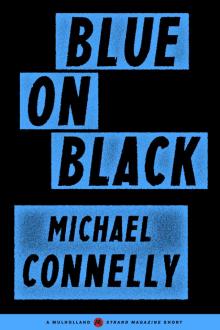 Blue on Black
Blue on Black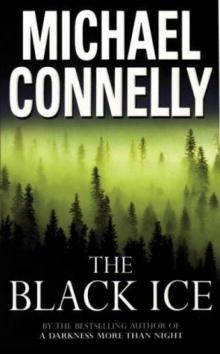 The Black Ice (1993)
The Black Ice (1993) Crime Beat: A Decade of Covering Cops and Killers
Crime Beat: A Decade of Covering Cops and Killers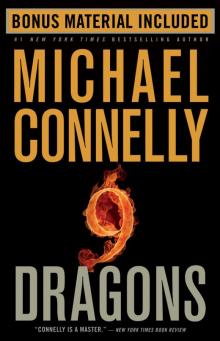 Nine Dragons
Nine Dragons The Late Show
The Late Show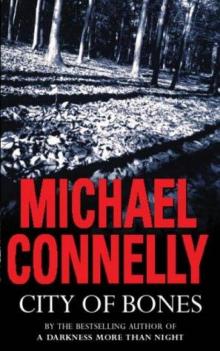 City of Bones
City of Bones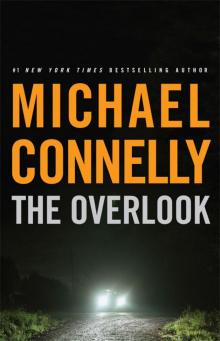 The Overlook
The Overlook The Crossing
The Crossing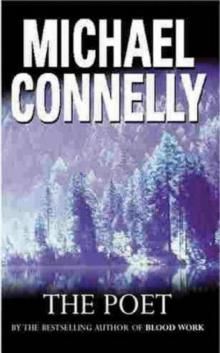 The Poet (1995)
The Poet (1995) Murder Worthy
Murder Worthy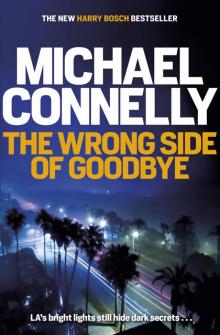 The Wrong Side of Goodbye
The Wrong Side of Goodbye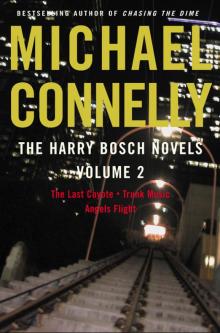 Harry Bosch Novels, The: Volume 2
Harry Bosch Novels, The: Volume 2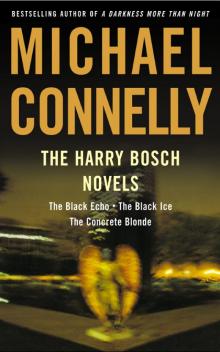 The Harry Bosch Novels
The Harry Bosch Novels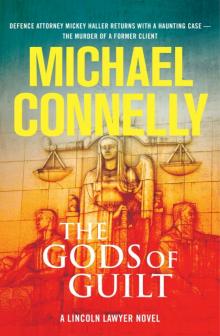 The Gods of Guilt
The Gods of Guilt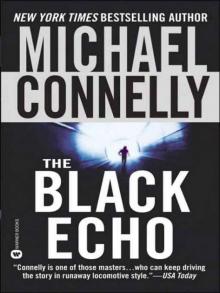 The Black Echo
The Black Echo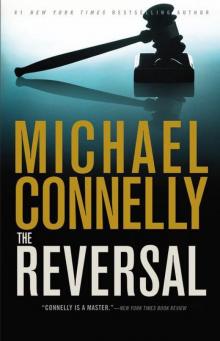 The Reversal
The Reversal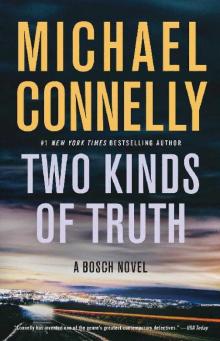 Two Kinds of Truth
Two Kinds of Truth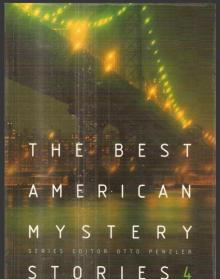 The Best American Mystery Stories 2003
The Best American Mystery Stories 2003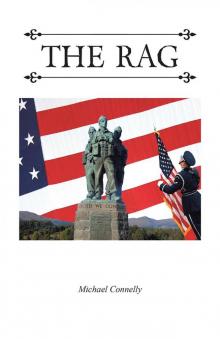 The Rag
The Rag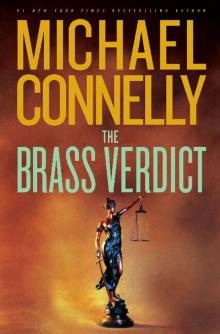 The Brass Verdict
The Brass Verdict The Black Echo (1992)
The Black Echo (1992) Switchblade
Switchblade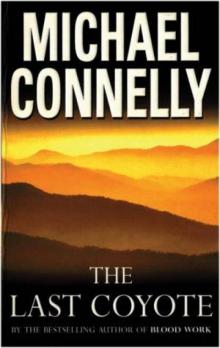 The Last Coyote
The Last Coyote The Narrows
The Narrows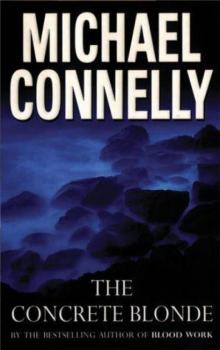 The Concrete Blonde (1994)
The Concrete Blonde (1994)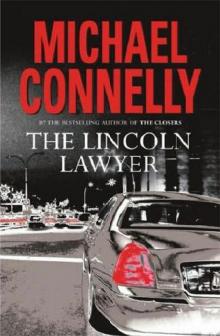 THE LINCOLN LAWYER (2005)
THE LINCOLN LAWYER (2005)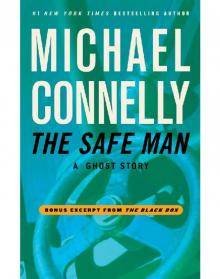 The Safe Man: A Ghost Story
The Safe Man: A Ghost Story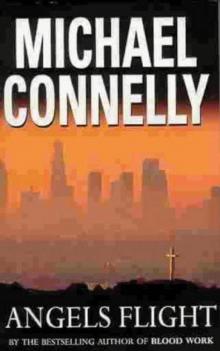 Angels Flight (1998)
Angels Flight (1998) Void Moon
Void Moon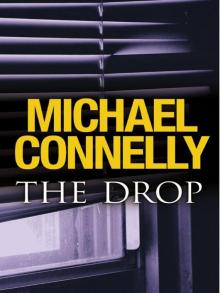 The Drop
The Drop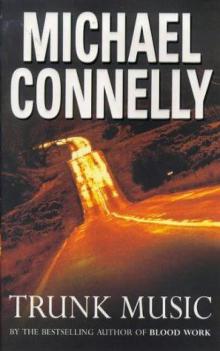 Trunk Music
Trunk Music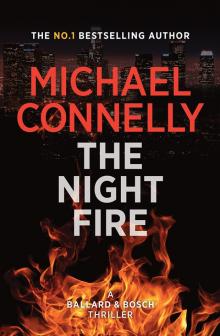 The Night Fire
The Night Fire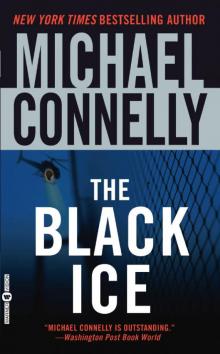 The Black Ice
The Black Ice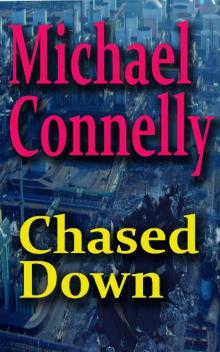 Chased Down
Chased Down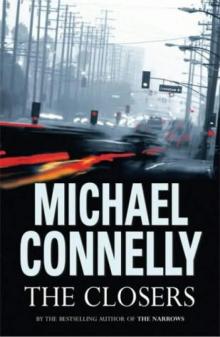 The Closers
The Closers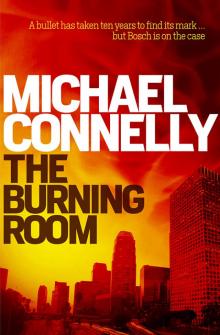 The Burning Room
The Burning Room Angels Flight
Angels Flight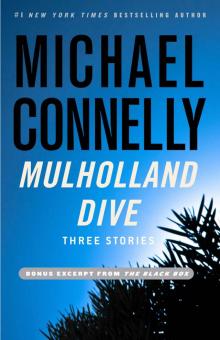 SSC (2012) Mulholland Drive
SSC (2012) Mulholland Drive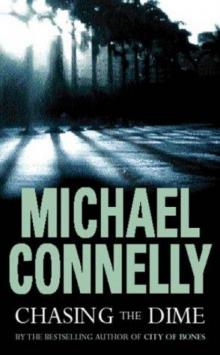 Chasing the Dime
Chasing the Dime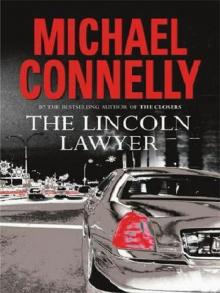 The Lincoln Lawyer
The Lincoln Lawyer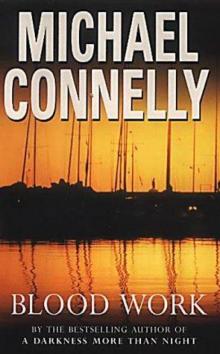 Blood Work (1998)
Blood Work (1998)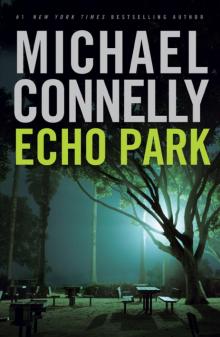 Echo Park
Echo Park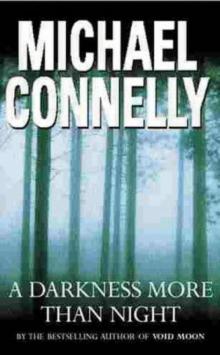 A Darkness More Than Night
A Darkness More Than Night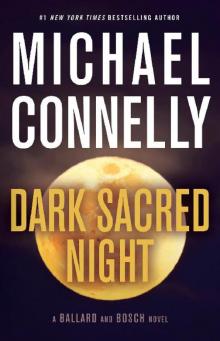 Dark Sacred Night - Ballard and Bosch #1;Renée Ballard #2
Dark Sacred Night - Ballard and Bosch #1;Renée Ballard #2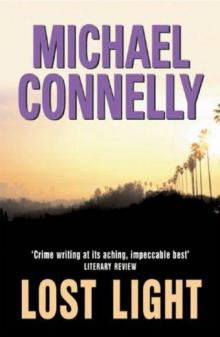 Lost Light
Lost Light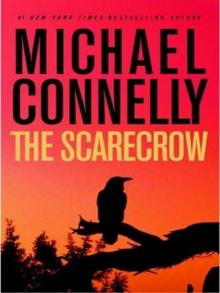 The Scarecrow
The Scarecrow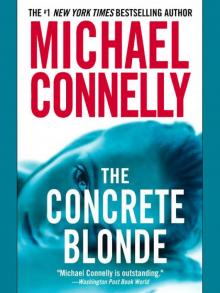 The Concrete Blonde
The Concrete Blonde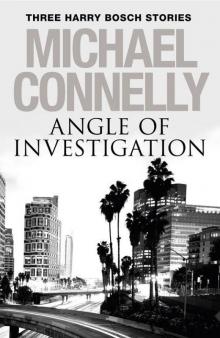 Angle of Investigation
Angle of Investigation Suicide Run: Three Harry Bosch Stories
Suicide Run: Three Harry Bosch Stories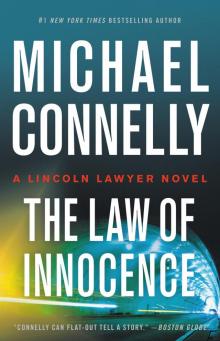 The Law of Innocence
The Law of Innocence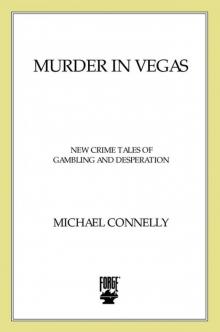 Murder in Vegas: New Crime Tales of Gambling and Desperation
Murder in Vegas: New Crime Tales of Gambling and Desperation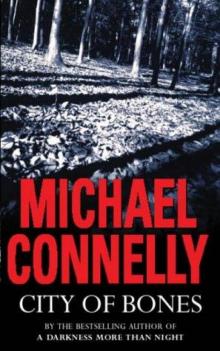 City Of Bones (2002)
City Of Bones (2002)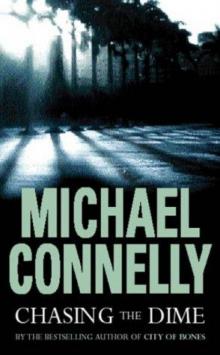 Chasing the Dime (2002)
Chasing the Dime (2002)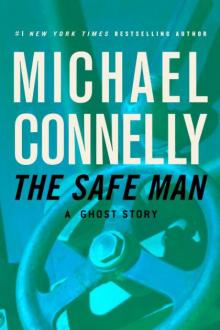 The Safe Man
The Safe Man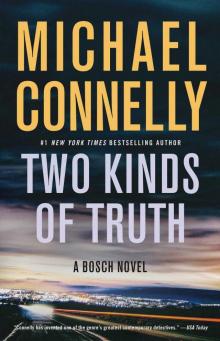 Two Kinds of Truth (A Harry Bosch Novel)
Two Kinds of Truth (A Harry Bosch Novel)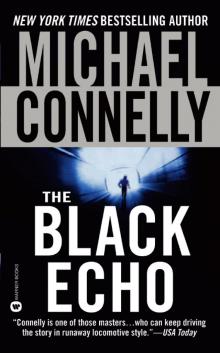 Harry Bosch 01 - The Black Echo
Harry Bosch 01 - The Black Echo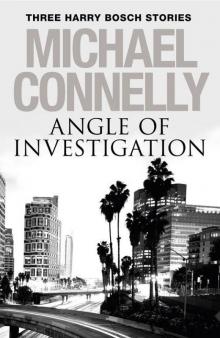 Angle of Investigation: Three Harry Bosch Short Stories
Angle of Investigation: Three Harry Bosch Short Stories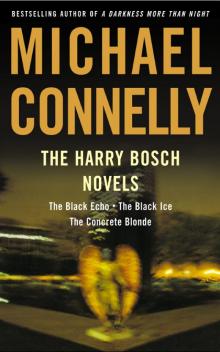 The Harry Bosch Novels Box Set 1
The Harry Bosch Novels Box Set 1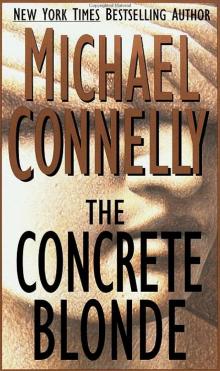 The Concrete Blonde hb-3
The Concrete Blonde hb-3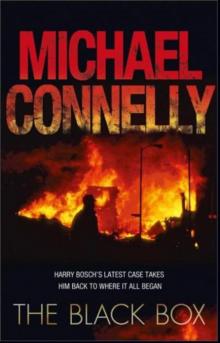 The Black Box hb-18
The Black Box hb-18 Short Stories
Short Stories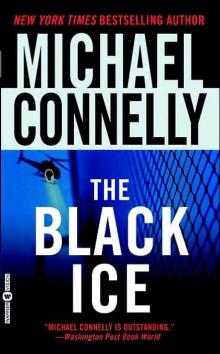 The Black Ice hb-2
The Black Ice hb-2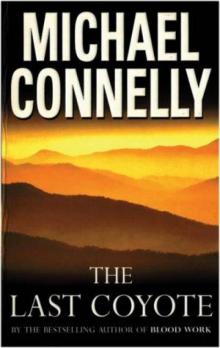 The Last Coyote (1995)
The Last Coyote (1995)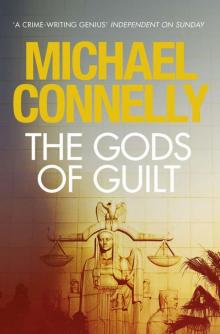 The Gods of Guilt mh-5
The Gods of Guilt mh-5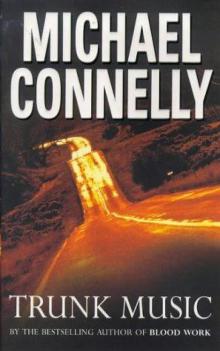 Trunk Music (1996)
Trunk Music (1996)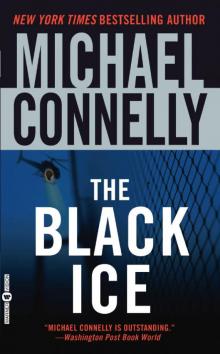 Harry Bosch 02 - The Black Ice
Harry Bosch 02 - The Black Ice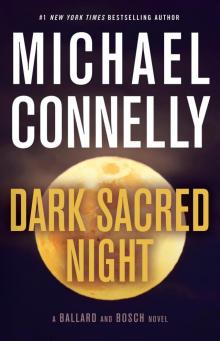 Dark Sacred Night
Dark Sacred Night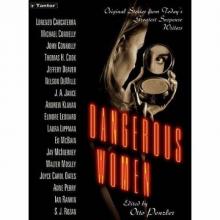 Cielo Azul
Cielo Azul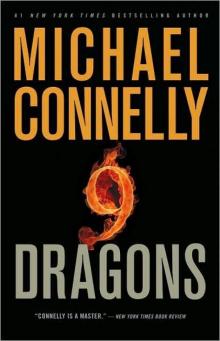 9 Dragons
9 Dragons The Narrows (2004)
The Narrows (2004)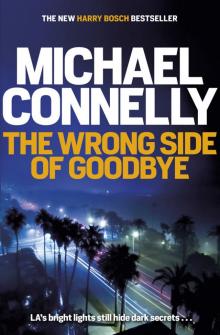 The Wrong Side of Goodbye (Harry Bosch Series)
The Wrong Side of Goodbye (Harry Bosch Series)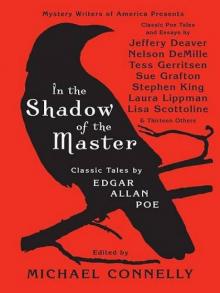 In The Shadow Of The Master: Classic Tales by Edgar Allan Poe
In The Shadow Of The Master: Classic Tales by Edgar Allan Poe Void Moon (1999)
Void Moon (1999)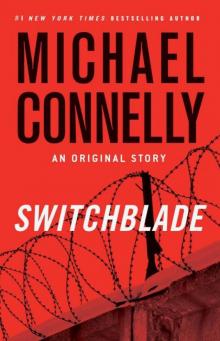 Switchblade: An Original Story (harry bosch)
Switchblade: An Original Story (harry bosch)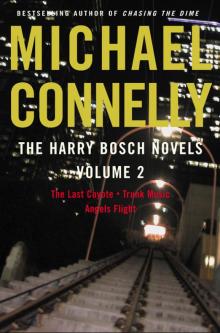 The Harry Bosch Novels, Volume 2
The Harry Bosch Novels, Volume 2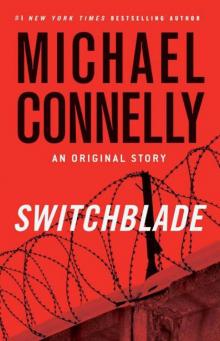 Switchblade: An Original Story
Switchblade: An Original Story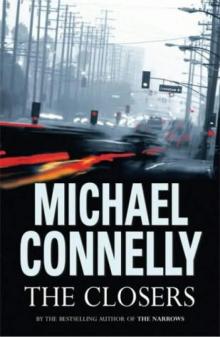 The Closers (2005)
The Closers (2005) Crime Beat
Crime Beat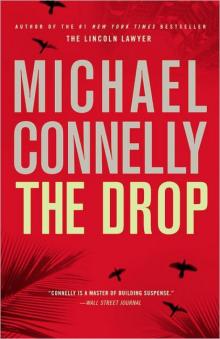 The Drop hb-17
The Drop hb-17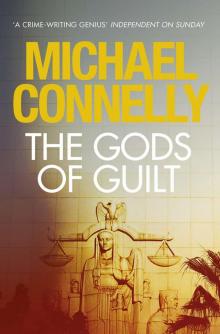 The Gods of Guilt (Mickey Haller 5)
The Gods of Guilt (Mickey Haller 5)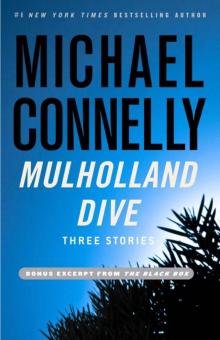 Mulholland Dive: Three Stories
Mulholland Dive: Three Stories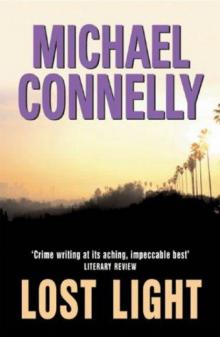 Lost Light (2003)
Lost Light (2003)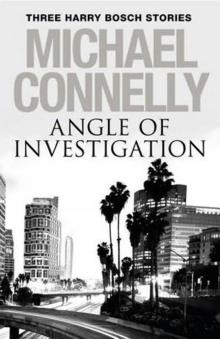 Angle of Investigation: Three Harry Bosch Stories
Angle of Investigation: Three Harry Bosch Stories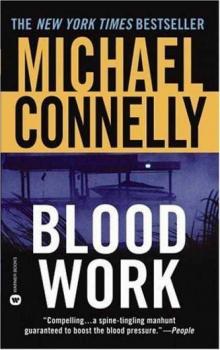 Blood Work
Blood Work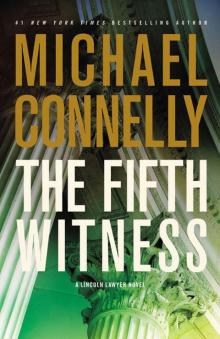 The Fifth Witness: A Novel
The Fifth Witness: A Novel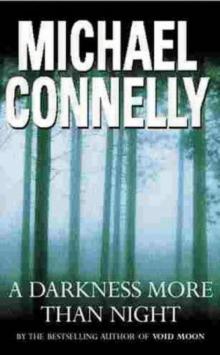 A Darkness More Than Night (2000)
A Darkness More Than Night (2000)